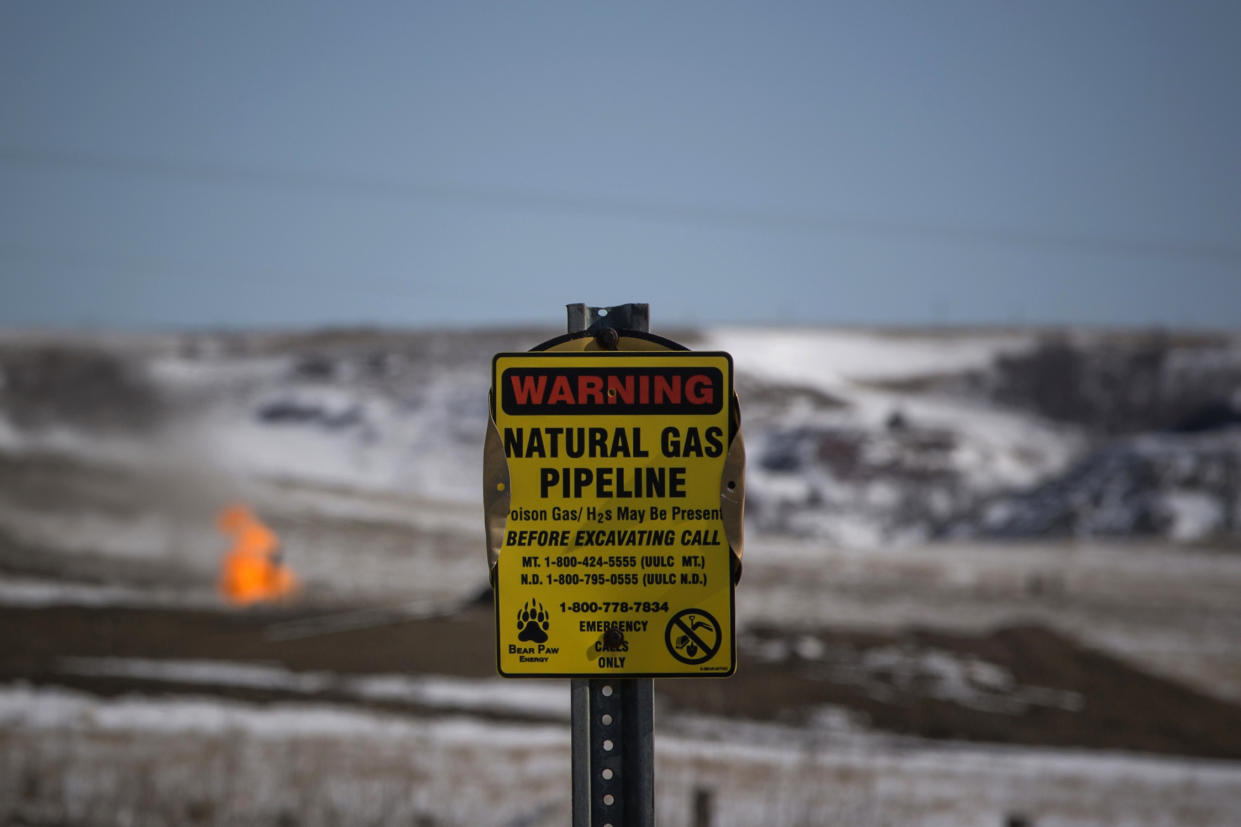How Biden could lower oil and gas prices
Biden administration officials have been publicly and privately cajoling energy executives to increase production and help lower gasoline prices, which are well above $4 per gallon. Asking won’t work, however. Even if they ask nicely.
Oil and natural gas producers base drilling decisions on economic factors and profitability estimates, not on requests from politicians. If President Biden wanted to, his administration could adjust federal policy in ways that would make fossil fuel investments less risky and more profitable, which in turn would boost the incentive to increase production. The obvious problem for Biden is this would conflict with his goal of weaning the U.S. economy off fossil fuels and transitioning to green energy.
For much of the last decade, oil and gas firms overproduced, which kept prices low for consumers but wrecked profitability and drove some companies out of business. The business model has since shifted. Firms now return more money to shareholders and spend less boosting capacity. At the same time, oil and gas investors worry more about societal and governmental pressure to reduce carbon use—in the United States and elsewhere—which means they expect higher returns in a shorter timeframe.
The most effective way to stimulate more oil and gas production would be through this investor channel, because it directly affects what energy firms do with their cash flow. Standing up a rig and staffing it costs millions of dollars and can require a year of production or more to turn a profit. High prices make profitability more likely, but there’s no guarantee prices will stay high. Uncertainty over various forms of permitting for wells, pipelines and export facilities adds to reluctance.

“You have a public campaign against us, which is increasing the cost of capital,” Chris Wright, CEO of Liberty Oilfield Services, tells Yahoo Finance. “Why don’t we stop the public trashing of our industry. If we could do that, we’d be more inclined to invest more. Dial back the all-of-government war against hydrocarbons.”
[Follow Rick Newman on Twitter, sign up for his newsletter or send in your thoughts.]
The Biden administration is trying to factor the cost of climate change—rising oceans, more frequent natural disasters, shifting weather patterns—into the government’s regulation of businesses. Financial regulators want banks to incorporate climate risks into their business models. The Securities and Exchange Commission wants all publicly traded companies to report on carbon emissions at every phase of their operations. The agency that approves interstate oil and gas pipelines now plans to include climate risk as part of the approval process.
Environmentalists applaud these efforts, but to oil and gas investors they add to risk and cost, making the whole industry more cautious about production decisions. So what could the Biden administration change, if it wanted to? Here are some of the things industry officials and other experts say would make a difference:
Approve more export facilities. In a February letter to Energy Secretary Jennifer Granholm, the American Petroleum Institute argued for the faster approval of facilities for exporting crude oil, natural gas and petroleum products. Higher levels of U.S. energy exports would improve the energy sector’s profitability outlook by expanding its access to foreign markets. That could add to investor confidence and lead to easier financing for energy projects in general. Putting additional U.S. oil into the global market could also help lower prices everywhere. More U.S. exports of natural gas could help Europe break its dependence on Russian gas, which has become crucial following Russia’s Feb. 24 invasion of Ukraine. The Biden administration did recently speed the approval of two natural gas export terminals and could do the same for others that are pending.

Speed approval of pipelines and other types of infrastructure. This would help get more natural gas onto the world market, since a lot of gas goes untapped or even gets burned off for lack of transport. A coalition of gas industry trade groups recently sent a letter to President Biden asking for quicker approval of 15 gas pipeline applications and 17 other types of infrastructure. States and localities have jurisdiction over pipelines, too, and sometimes those restrictions block construction even when there's federal approval.
Pause or undo climate-accounting rules. This would be a powerful signal that the Biden administration is becoming friendlier to oil and gas producers. “Bam. That would be a shot of confidence right there,” says Wright. Climate-reporting rules are meant to establish some accountability for the costs of climate change now borne by nobody in particular, and society as a whole. But they can go too far if they double-count emissions or merely open the door to lawsuits against companies that don’t report correctly.
Facilitate onshore and offshore leases and permits. The oil and gas industry has plenty of access to energy deposits for current needs, but many officials complain the Biden administration is slow-rolling access important to planning for future projects. Again, this gets to the question of whether investments now will pay off in a timely fashion or get bogged down in red tape for years.
Repeal or amend the Jones Act. This 1920 law requires all goods shipped between U.S. ports to move on U.S.-flagged ships built in the United States, owned by U.S. citizens and operated by U.S. crews. This is impractical in an era of global shipping and results in weird anomalies, such as some parts of the country being forced to import energy because it’s easier and less costly than getting domestic energy by ship from U.S. Gulf Coast. The Jones Act may also impede deliveries of green energy such as clean hydrogen, and the construction of offshore wind farms.
“There is no future under the Jones Act status quo in which U.S. shipbuilders will be able to compete in the growing market for vessels that play an important role in the clean energy transition,” the Breakthrough Institute argued in a recent report.

Aside from select permit approvals necessary to ship more U.S. gas to Europe, Biden seems unlikely to do any of these things. And whether he should is an open question. The green energy investments required to head off the worst impacts of global warming are way behind, according to the International Energy Agency and many others. Biden's policies are just part of the pressure to cut carbon emissions, with many other governments, activists and investor groups pushing for change as well. Many voters want action, which is why Biden faces pressure to cut carbon emissions in the first place.
At the same time, there are some major pitfalls on the pathway from carbon to renewables. The push for renewables creates a disincentive to invest in fossil fuels, even as the world remains heavily dependent on oil and natural gas for today’s energy. If you try to displace the old with the new too fast, supply will fall behind demand and consumers will pay the price. That in itself can generate opposition to green energy and slow the needed pace of change.
Biden argues that more renewables are the ultimate solution to costly oil and gas. He might be right—eventually. But right now, there’s simply not enough wind or solar or hydro power to offset the modest shortfall in fossil fuels that’s driving up energy costs for nearly everybody. The transition from carbon to renewables will take decades, and while it’s good to have a vision of a cleaner future, it’s also necessary to map out exactly how we’re going to get there.
Rick Newman is the author of four books, including "Rebounders: How Winners Pivot from Setback to Success.” Follow him on Twitter: @rickjnewman. You can also send confidential tips.
Follow Yahoo Finance on Twitter, Instagram, YouTube, Facebook, Flipboard, and LinkedIn
